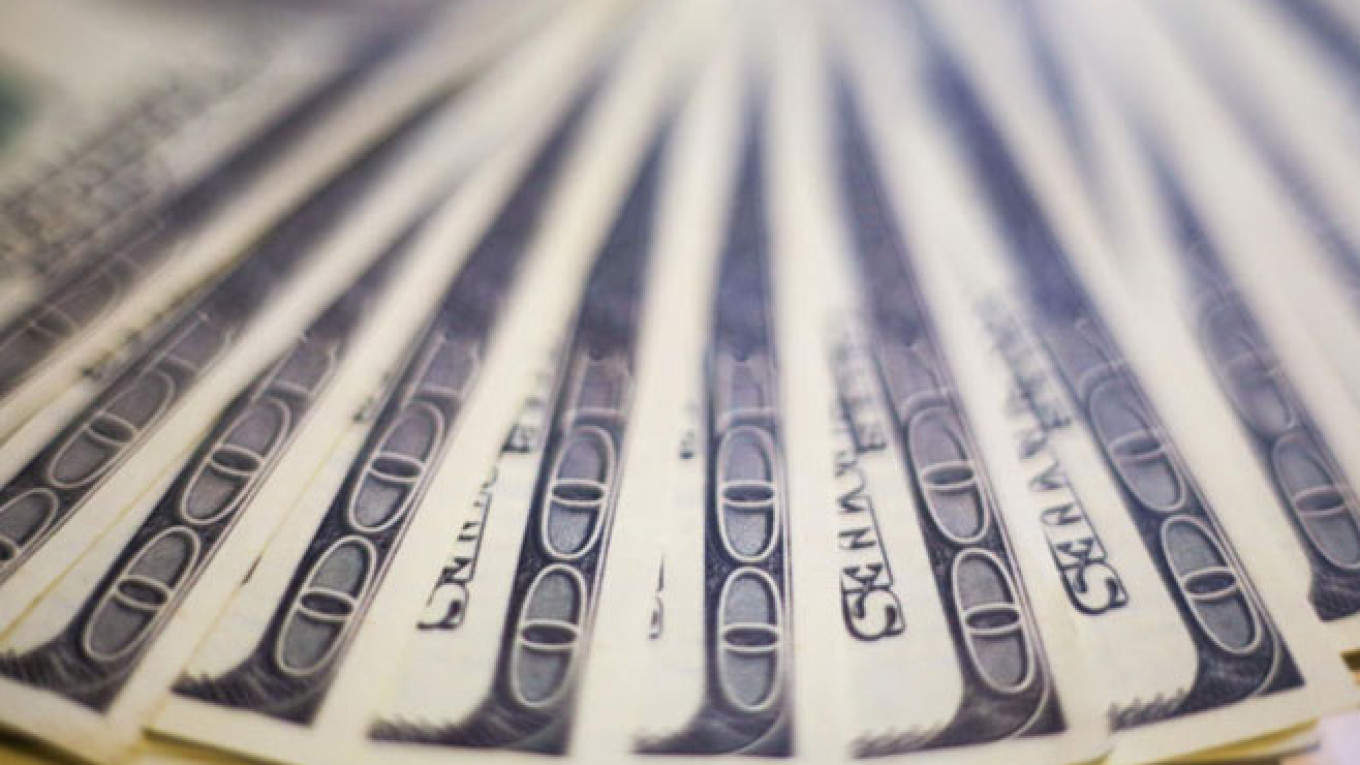A consumer protection agency representing foreign currency mortgage holders in Russia has sued the Central Bank over its handling of a currency crisis last year during which the ruble lost over 40 percent of its value against the U.S. dollar.
Tens of thousands of Russians have been left on the verge of financial ruin by the Central Bank's actions, according to a statement by the Society for Consumer Rights Protection late last week.
Pressured by a falling oil price, economic problems and Western sanctions on Moscow over the Ukraine crisis, the ruble lost 39 percent of its value between the beginning of November and the end of January.
The suit against the Central Bank was filed at Moscow's Meshchansky District Court last week, according to the Society for Consumer Rights Protection.
At the beginning of November, as oil price falls intensified, the Central Bank abolished the trading corridor that it used to regulate the value of the ruble and ceased regular interventions on the foreign exchange market, accelerating the ruble's devaluation.
"The Central Bank violated the rights of a large number of families who have foreign currency mortgages. It didn't fulfill the requirement of the law and the constitution to maintain the stability of the national currency, and, moreover, didn't keep its public promises about supporting the currency corridor," according to the Society for Consumer Rights Protection.
Several hundred foreign currency mortgage holders held a picket outside the Central Bank last year amid the ruble collapse as they watched their monthly payments skyrocket. In recent years, banks encouraged people to take out mortgages in dollars or euros with attractive rate offers.
Unlike in the financial crisis of 2008 and 2009, when Russia spent about $200 billion to protect the ruble amid plunging oil prices, the Central Bank's policy has helped conserve foreign currency reserves.
A weaker ruble offsets revenue losses for the government from the fall of the price of oil, Russia's chief export. While a $1 drop in the oil price deprives the budget of about 80 billion rubles ($2.1 billion) a year, a 1 ruble increase in the dollar's exchange rate boosts annual income by about 200 billion rubles.?
A Message from The Moscow Times:
Dear readers,
We are facing unprecedented challenges. Russia's Prosecutor General's Office has designated The Moscow Times as an "undesirable" organization, criminalizing our work and putting our staff at risk of prosecution. This follows our earlier unjust labeling as a "foreign agent."
These actions are direct attempts to silence independent journalism in Russia. The authorities claim our work "discredits the decisions of the Russian leadership." We see things differently: we strive to provide accurate, unbiased reporting on Russia.
We, the journalists of The Moscow Times, refuse to be silenced. But to continue our work, we need your help.
Your support, no matter how small, makes a world of difference. If you can, please support us monthly starting from just $2. It's quick to set up, and every contribution makes a significant impact.
By supporting The Moscow Times, you're defending open, independent journalism in the face of repression. Thank you for standing with us.
Remind me later.


